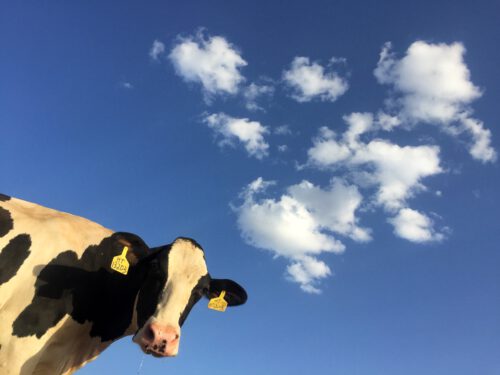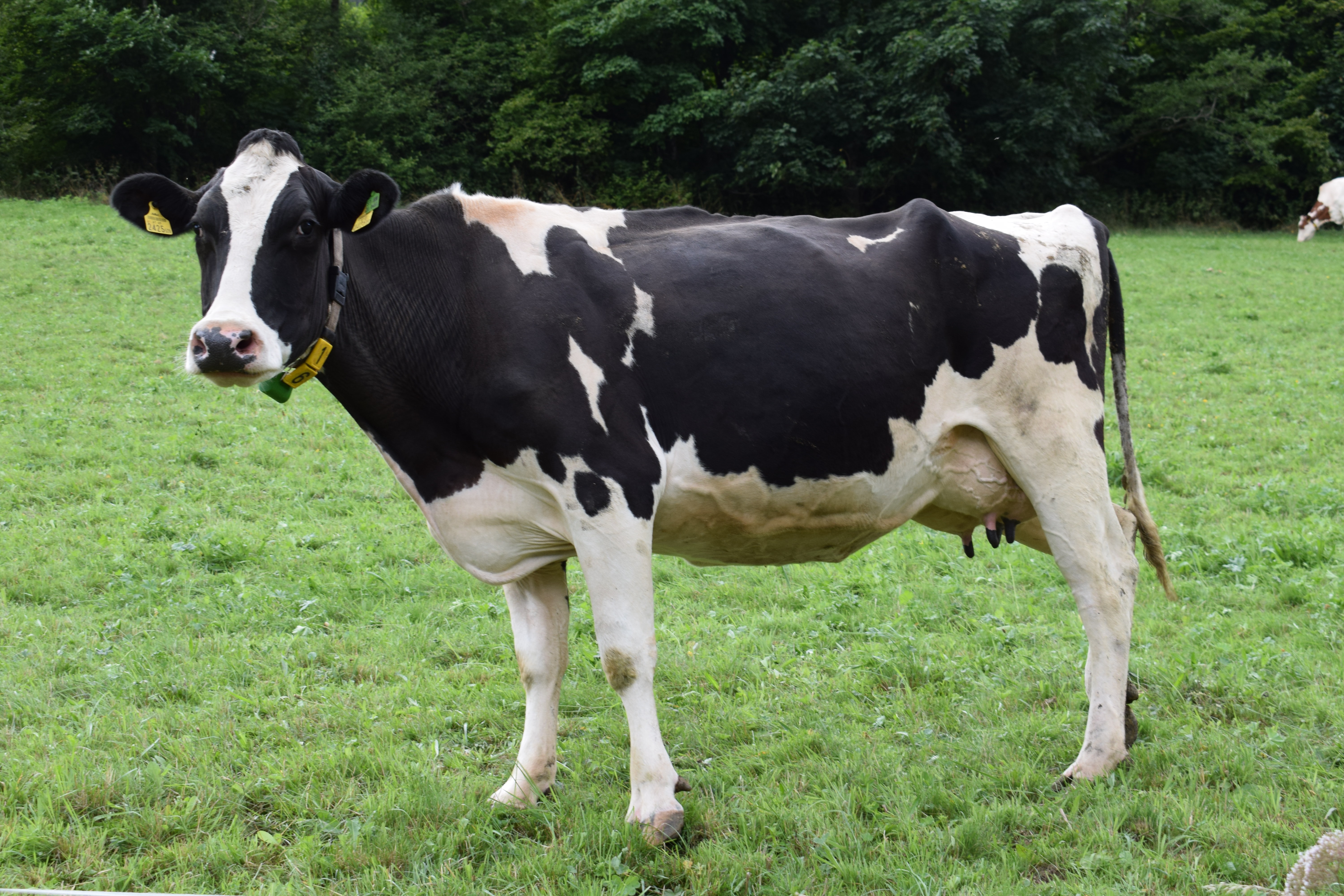A new study has found that genetic improvement of cows can help significantly reduce greenhouse gas emissions in the dairy industry
Racheli Vox - Angle - Science and Environment News Agency

Bloating and belching cows is the unconventional subject at the center of Advertising which was recently released by the fast food chain Burger King. In the ad, a boy dressed in white with a cowboy hat and a guitar in his hand comes out from behind a wooden cow and sings a catchy country song about the greenhouse gases that are emitted when the cows from which the hamburgers are made release gases from their digestive systems.
The fact that the animal food industry causes enormous environmental damage has long been no secret. But now, A new Spanish study He found that it would be possible to reduce the release of the greenhouse gas methane in the dairy industry by 20 percent within 10 years if genetic improvement of cows was used for this purpose.
Today, the animal food industry is responsible About 14.5 percent of the world's greenhouse gas emissions. One of the worrisome greenhouse gases emitted by this industry's activity is methane, whose contribution to worsening the climate crisis is 28 times greater than that of the more common greenhouse gas, carbon dioxide. Livestock animals - cows, for example - are one of the main sources of methane emissions in the animal food industry, and they emit a total amount of 4,623 megatons of carbon dioxide equivalent (that is, methane in an amount whose effect on the greenhouse effect is equal to that of 4,623 million tons carbon dioxide) per year in the world, Of which 2,128 megatons are from dairy cows.
Four stomachs and a lot of methane
Cows, like other ruminant animals that feed on hard-to-digest plant foods, have a digestive system very different from ours, which includes four stomachs. If in humans the breakdown of food by bacteria and other microorganisms takes place at a late stage of digestion, when the food reaches the large intestine, then in cows the food is digested by communities of microorganisms already at the top of their digestive system, in a part called the rumen.
"Microorganisms break down the plant fibers that the cows eat and turn them into materials they can use," says Prof. Itzik Mizrahi from the Department of Life Sciences at Ben Gurion University. According to him, the methane is a by-product of the decomposition. "At the end of the process, methane is emitted into the atmosphere by microorganisms called methanogenic archaea, and the other substances that the various microorganisms produce are absorbed by the cow and used by her for her energy needs."
"in the studies we conducted, and in the studies of other researchers, it was found that there is a connection between the genetics of the cow and the emission of methane," says Mizrahi. "We even found a link between genetics and specific microorganisms that live in the cow's digestive system. This information can be used to improve the cows, so that their digestive system will have a different composition of microorganisms, which will cause them to emit less methane."
Such improvement can be done by artificial selection: hybridizing individuals of a certain biological species according to certain traits they have (or don't have), with the aim of passing these traits on to future generations. Man has been using this method since ancient times, and through it the breeds of animals that are currently used in the animal food industry, as well as the breeds of dogs and other animals, were developed.
Cumulative influence from generation to generation
In the new study, recently published in the Journal of Dairy Science, the researchers relied on data collected From 1,501 cows that lived in 14 commercial farms across Spain between May 2018 and June 2019.
The researchers measured the methane concentrations in the barns, mapped the genomes of the cows and found that if reducing the amount of methane produced by a cow per year is included in the farmers' breeding goals, it would be possible to reduce the amount of greenhouse gases emitted by the cows by 20 percent within ten years. In the short term, the effect of such a move on methane production is smaller than that of making changes in the cows' diet, but the effect accumulates from generation to generation and is therefore very beneficial in the long term.
And what about possible damage to the cows' milk yield? According to Mizrahi, the answer depends on how the reduction in methane production is caused. "One way to reduce methane production is to reduce the cow's belly, and this does reduce the amount of milk they produce," he says. However, according to him, this is not the only way. "It is also possible to improve cows so that their physiology will not allow certain groups of methanogenic archaea to live in the rumen, or will allow other microorganisms to take their place. This will make it possible to maintain efficient milk production or even increase production."

reduce damage to the environment
Today, the consumption of milk and its products is In constant increase around the world. This consumption is higher in developed countries, but the developing countries are gradually reducing the gap due to the increase in income in these countries, population growth, urbanization and changes in the diet of their residents. This trend is noticeable in particularly populated countries, such as China, Vietnam and Indonesia. Also in Israel, milk consumption per capita, which in 2000 stood at 172 liters per person per year, climbed in 2017 toAbout 179 liters per year.
Various voices call for reducing or stopping the consumption of milk, both for environmental reasons and for ethical reasons that relate to the suffering caused to the cow as a result of its rearing conditions, which includes, among other things, the separation of the calves from their mothers immediately after calving, udder infections and slaughter at a young age.
Indeed, in recent years, various initiatives have been operating around the world with the aim of reducing the extensive methane emissions from the animal food industry. "The European Union, for example, announced an initiative on the subject in the amount of 10 million euros," says Mizrahi. "The attempts to reduce emissions are carried out through several channels: improvement, dietary changes, use of probiotics, giving chemicals to digest methane and more. Many scientists around the world are very disturbed by the matter."
"I think that scientists from all over the planet should join the effort, and try to understand how to reduce the impact of agriculture on the environment", concludes Mizrahi. "The European Union and the United States are investing in research on the subject, and the Israeli government should also follow suit."

3 תגובות
Since no corporation advertises on the science site (here and there are small publishers), I can tell you that no one interferes with the site, the only criterion is the scientific criterion.
https://www.hayadan.org.il/pseudoscience-is-taking-over-social-media-and-putting-us-all-at-risk-0408192
An old study shows that consuming cow's milk (!) causes terrible cumulative damage to the human body. But it is not economical to publish it.
To ban milk and its products completely, they have no benefit, only health damage